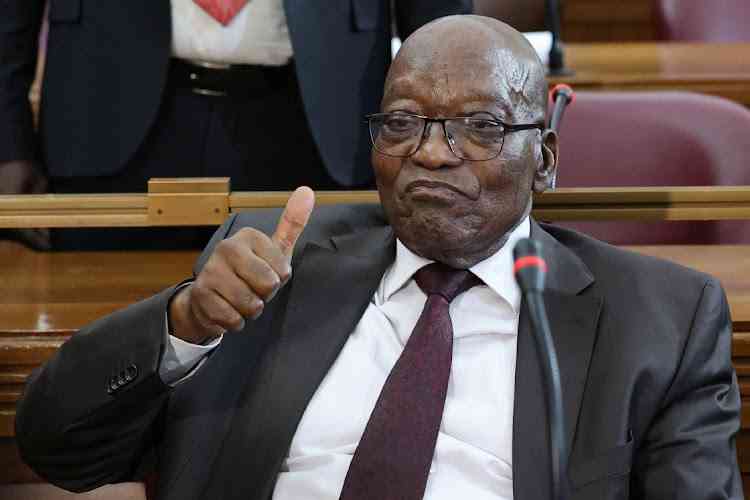
The former director-general in the South African Office of the Presidency, Reverend Frank Chikane, recently published an interesting if not controversial book. The title of the book, Eight Days in September: The Removal of Thabo Mbeki, is indicative of its content and storyline. In reading the book, it seems that there are two main perspectives that Chikane makes apparent in his writing.
The first perspective being that the ouster of Mbeki from the Office of the Presidency of South Africa was, on the basis of procedure, unconstitutional. In fact, Chikane makes reference to it being at one point or the other having been referred to in some circles as a potential “coup d’etat”. He, however, avers that it was Mbeki’s revolutionary leadership that seems to have saved the day as the latter did not utilise the constitutional options open to him by “magnanimously” following instructions from the African National Congress (ANC) post-Polokwane leadership.
This, according to the author, was because Mbeki was aware of the necessity of unity within his party and not being seen to be acting in his own personal interests. This is an issue that is also raised within the context of the author warning that it was evidence of the ANC taking over the role of the South African Parliament and therefore blurring the distinction between a sitting government and a ruling party’s leadership.
The second point that is put across in the book is that Mbeki’s presidency seems to have made the wrong sort of impression internationally, particularly with global powers. While Chikane does not claim any direct hand in the role of these same said global powers in the ouster of Mbeki, he mentions more than once that he was worried over the safety of the then president. The argument given is that the former president’s foreign policy was rubbing a number of former colonial powers and international pharmaceutical companies the wrong way. In this argumentation, Mbeki is compared to Ghana’s founder Prime Minister Kwame Nkrumah (with a chapter dedicated to this comparison).
For Zimbabweans, however, this book will be of particular interest in that the author makes reference to the fact that the week that the Zimbabwe’s Global Political Agreement (GPA) was signed, was the same week in which a ANC National Executive Council meeting to recall Mbeki was scheduled to take place. In mentioning this, Chikane argues that the South African media sought more to focus on statements attributed to the post-Polokwane ANC leadership concerning the matter of “recalling” Mbeki from the Office of President of South Africa than the foreign policy triumph that was the Zimbabwean GPA.
Reference is also made in the book to statements attributed to former United States Assistant Secretary of State for Africa Jendayi Frazer. In the referred to statements, Frazer is quoted as denouncing the GPA, a development that the author hints to as being part of the unfortunate lexicon of the vilification of Mbeki’s foreign policy.
The author makes it clear that he views the GPA as a major African diplomatic success (under the mediation of Mbeki) and further emphasises that there were other vested global interests that sought to impose a leadership on the people of Zimbabwe.
For any Zimbabwean, this is a controversial point on its own given the fact that there are divergent views on Mbeki’s role in the formulation of the GPA, particularly from the leaders of the political parties that constitute the inclusive government. What is apparent, however, is that it is time for Zimbabweans to assess the role and legacy of the GPA, Mbeki and Sadc as the country anticipates elections by March 2013. This is why Chikane’s take on Mbeki’s ouster is probably an important book for those that seek to understand the progression and politics of the inclusive government established under Mbeki’s mediation.
- Chamisa under fire over US$120K donation
- Mavhunga puts DeMbare into Chibuku quarterfinals
- Pension funds bet on Cabora Bassa oilfields
- Councils defy govt fire tender directive
Keep Reading
This is because while Chikane writes mainly for a South African audience, his assessment of the Zimbabwean crisis and the remedies sought via Mbeki’s role remain important. Indeed the Reverend may be viewed as arguing more in defence of Mbeki, but that does not mean his views are dismissible. This is particularly so given the fact that the author served as Cabinet secretary to Mbeki for both of the latter’s terms as South African president.
What is, however, of greater significance to Zimbabweans is the necessity of beginning to assess the impact of the GPA in the broadest and particular political performance terms. This should not necessarily be done within the ambit of Chikane’s opinion of the same, but in aid of a much more honest political assessment of what have been the advantages and disadvantages of the GPA.
This is even more important because the inclusive government has come full circle and at best, barring an amendment to the Constitution of Zimbabwe, will come to a conclusion in the first quarter of 2013. While I may not be in a position to make the rather extravagant comparison of Mbeki with Nkrumah, we are all well within our right to measure whether the former’s legacy should be accorded the recognition that Chikane seems so keen on.
Takura Zhangazha writes here in his personal capacity. takura-zhangazha.blogspot.com











